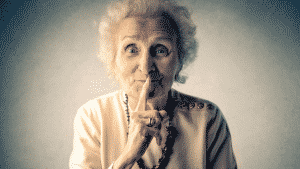The First Sign I Was Experiencing Vicarious Trauma
I am so glad that you’re here and joining me for part two of Trauma-Informed Care with Older Adults. Today’s episode focuses on you—the professional in your role of providing care and services to older adults.
Whether you’re a healthcare professional, mental health provider, aging services professional, or home health aide, your health and wellness matter just as much as the people you serve.
For over 20 years, I’ve worked with older adults in various settings, many of whom were recovering from significant trauma. I have always been diligent about self-care and sought support through my own therapy. But my experience with vicarious trauma still caught me off guard—and it hit me hard.
In this episode, I share my own journey of recognizing vicarious trauma, the signs to look for, and how to navigate healing so you can continue doing the work you love without sacrificing your well-being.
What You’ll Learn in This Episode:
- I share the first sign I was experiencing vicarious trauma
- What vicarious trauma is and why professionals are at risk
- Key warning signs of vicarious trauma
- The impact of trauma exposure on mental health providers and aging service professionals
- Strategies to recognize, manage, and prevent vicarious trauma
- Organizational and personal solutions to creating a sustainable career in care work
Click here to Get your free Trauma-Informed Care Guide
Why Trauma-Informed Care Matters in Aging Services
A trauma-informed approach:
✔️ Improves trust and engagement between older adults and providers
✔️ Leads to better health outcomes and reduces health inequities
✔️ Helps providers avoid burnout and fosters resilience within care teams
Vicarious Trauma Resources
Additional Helpful Resources
- Trauma Informed Care with Older Adults Certificate Course (6 CEU credits)
- Article: Trauma and Older Adults: Acute Stress Disorder, PTSD, and Unique Considerations
- Trauma-Informed Care Guide for Older Adults: Download here
- Helping Older Adults After Disasters: A Guide by SAMHSA
- Helping Older Adults Prepare for Disasters: Essential Resources & Tips
- SAMHSA Disaster Distress Helpline: 1-800-985-5990
- National Crisis Hotline for Mental Health: Call 988 (Like 9-1-1 but for mental health emergencies)
References:
- Ting, L.& Frey, Jacobsen, J., Sanders, S., Bride, B, & Harrington, D (2005). The Secondary Traumatic Stress Scale (STSS). Journal of Human Behavior in The Social Environment. 11. 177-194. 10.1300/J137v11n03_09.





